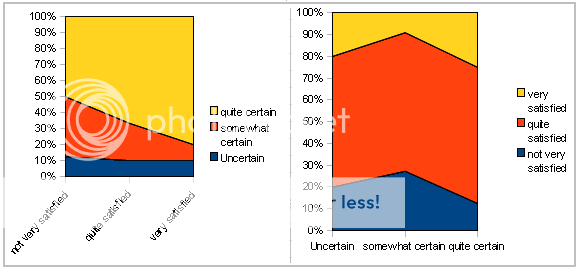If shades of grey were allowed, then no typologycal instrument would be valid, since there won´t be any way classify the data you gather, in order to analyze it and create a theory.
Types are not existing objects, but variables to define and classify a population, according to the data you get from it. If you are creating a typologycal instrument, you are forced to use functions or dichotomies.
Categorization is also fine. If you're categorizing something, and if you need hardline, "black and white" categorizations, then you've got to draw a line somewhere.
But I'd argue that it's these "black and white" categorizations that would be the source of lost data. If a line is drawn somewhere down the middle of a distribution, and if the majority of a population falls around that line, then that sense of central tendency isn't captured by the categorizations.
Which is fine, if you're not trying to develop a
theory of personality that applies to all individuals, but, instead, your aim is for a
categorization of personality.
If it turns out that individuals don't neatly fit into categories--that they
do have a tendency toward a middling classification--then conclusions that are based upon people reliably falling into those categories
aren't really valid. If there's no grandiose distinction between the average Thinker and the average Feeler, for example, it's difficult to extrapolate anything based upon how individuals are classified--where they're classified doesn't tell you anything.
Perhaps no typological theory based upon hardline categorizations
is valid. In which case, I'd say.. so what? That points to a requirement for a different approach altogether, if
categorization isn't the goal.
(This whole "categorization being the goal" thing is exactly why I'm 'quite satisfied' with MBTI, given that it's primarily intended as a categorization system.)
The Big Five does a fine job of providing a personality measure without needing to draw a function-based hardline categorization of individuals. Instead, it captures scaling tendencies based upon given data that shows correlations between certain attributes--collectively referred to as Extroversion, Openness, and so on. The Big Five measure allows for a sliding scale for each trait, it allows for individuals' tendencies to be based upon situational context, and it also allows for individuals to change.
Those 'allowances' also happen to match reality in a pretty direct way.
Perhaps an approach similar to that is necessary in order to capture the subtle nuances--the lost data--than other approaches.

